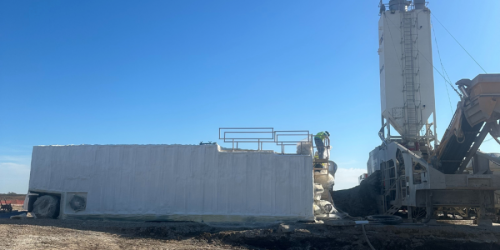Q&A Forums
non-vented crawl space Post New Topic | Post Reply
| Author | Comments |
|---|---|
|
Arville Brown
Posted: Jul 16, 2008 02:29 PM
|
non-vented crawl space
what is the correct way to create a non-vented crawl space.how do you remove the moisture
|
|
mason
Posted: Jul 16, 2008 02:39 PM
|
A non-vented crawl space will have moisture coming up from the ground. So, you want to separate that moisture from the rest of the space. If there is a concrete slab, many times a vapor retarder is installed before the slab is poured. If it is bare dirt, Typically a vapor retarder (plastic film( on the floor and a little up the walls of the crawl space will isolate the moisture below the so it cannot get into the ceiling area of the crawl space. The sprayfoam then can seal it off. |
|
Arville Brown
Posted: Jul 16, 2008 04:20 PM
|
Plastic is down & foam is sprayed. we are geting water driping off duct work should we have a vent under floor or something to draw moisture out. |
|
Posted: Jul 16, 2008 10:22 PM
|
insulate the duct work when hot meets cold condensation occurs... are you sure this is a moisture vapor issue,,,or maybe a condensation issue instead... i have sprayed to the dirt grade for vapor retarding membrane with good results,,,closed cell 2" or better naturally...helps with radon too.... |
|
Arville Brown
Posted: Jul 17, 2008 01:59 PM
|
condensation is the problem |
|
Posted: Jul 17, 2008 08:05 PM
|
mason,,i hope you dont mind... ok,,remember,,,foam dont make heat...it will help hold it and maintain it but it dont make it.. so...a broad generalization,,not knowing your demographics or other info... i would guess you insulated a crawl space for someone...probably sidewalls and box sills and band/rim joists...you may have shot the subfloor as well,,it dont much matter,,but if you did,,you got cheap-earled on the bid and only shot say 2-3 inches in the subfloor and there is 8" duct,,and it is uninsulated,,so you shot your 3 inches as you got paid to do... well,,,now it is the dog days of summer and the central air is doin the electric meter spin-o-rama and the damn duct work is drippin like tammy faes eyeliner(god rest her soul..lol)... if the crawl space is unconditioned space,,it is close to ambient temp...and you are running cold air thru poorly, or uninsulated duct,,,so drip it will...when hot meets cold,,condensation occurs.. even if it is conditioned there is great chance that it will still condensate due to difference in temps..derr... insulate the duct...make them pay you to do it!!when bidding crawls and subfloors look for this "setup"..the hvac guy butt rammed you by not installing insulated duct,,and when there is a failure it is the "insulations fault"...when you see something that doesnt look right when bidding..point it out to the general,,then it is his decision to accept the poor design or make the required changes to remediate the impending disaster.. if this is out of context well... nevermind 'dude |
|
philip mullins
Posted: Jul 18, 2008 03:48 AM
|
mason, just curious... if you sprayed the ground and the walls of the crawl space but, not the floor, would it work like an unvented attic? or woult the whole heat rising thing screw it up? also, if you are spraying the floor, what are the benefits, if any to sealing up the crawl space? tx bud. uninsulated ductwork????? thats wild. |
|
mason
Posted: Jul 21, 2008 08:19 AM
|
Foamdude is right that to prevent condensation on ducts, you insulate the ducts. Note; please describe the situation clearly and not just your proposed solution. When you start with the problem, we can better diagnose it and provide better recommendations. Knowing there was condensation on the ducts would have been helpful By the way heat doesn't always rise. Hot air rises sure, but heat transfer by conduction or radiation can go in any direction. Always hot to cold. So if the home is hotter than the crawl space, and there is limited insulation between the floor and the crawl space, the crawl space would get warmer. If the home is cooler than the crawl space, heat from the crawl space would go into the house. |





























